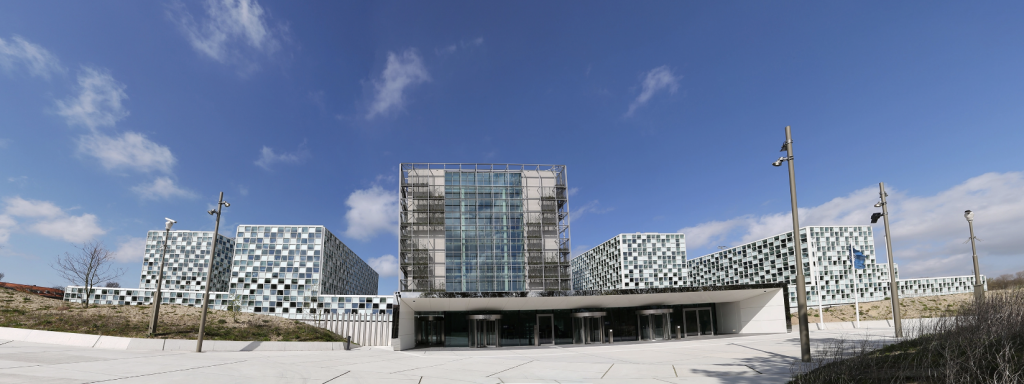In response to President Ramaphosa’s reference of Amnesty International yesterday, 25 April, when he announced that South Africa should withdraw from the International Criminal Court (ICC), a remark that has since been clarified as an “error”, Shenilla Mohamed, Executive Director of Amnesty International South Africa, said:
“Amnesty has advocated for the establishment of a worldwide system of international justice to step in when states cannot or will not act, including campaigning for the establishment and effective operation of the ICC. We firmly believe that the ICC can play a unique role in pursuing justice for victims of crimes under international law and in investigating and prosecuting those suspected of responsibility for such crimes, without fear or favour, no matter how great the political or economic power of certain actors.”
International justice means ensuring accountability for crimes under international law like genocide, crimes against humanity, war crimes, torture and enforced disappearances, and securing truth and reparations for victims. There are many reasons why victims of these crimes are denied justice. They include a lack of political will to investigate such crimes and prosecute those thought to be responsible, weak criminal justice systems, and the marginalisation of victims in society.
As a result, perpetrators may not be held to account and may even continue to hold positions in which they can commit violations or prevent accountability; victims are left to suffer; and few efforts are made to establish the truth or take steps to ensure that the crimes are never repeated. In these cases, international justice mechanisms like the ICC can step in to ensure that crimes are properly investigated, that perpetrators are brought to justice, and victims receive reparation to address the harm done.
“We welcome the clarification since, that ‘South Africa will remain a signatory to the Rome Statute’ and the continued recognition of ‘the importance of strengthening institutions of global governance’,” Shenilla Mohamed added.
“We, however, hold international justice institutions to account, even the ICC. Amnesty International has highlighted several recent decisions and practices which appear to beg the question of whether its principles applied equally to victims of crimes under international law in any situation or region. For example, in 2020 the Office of the Prosecutor (OTP) that sits in the ICC decided not to investigate war crimes by UK forces in Iraq, despite its own finding that these crimes had been committed. This was followed by a decision in 2021 to deprioritise an investigation into war crimes in Afghanistan by US and Afghan national forces, citing budget constraints.”
Amnesty International has called on the ICC to ensure that all funding is allocated in a non-discriminatory way and in accordance with the interests of justice, and to ensure that all victims of serious crimes have equal access to the rights to remedy and reparations.
“Amnesty International supports mechanisms of international justice such as the ICC. Where states wish to raise legitimate concerns about the Court, including perceptions of principles not being applied equally in its approach, we insist that they do so within the Assembly of States Parties, in the spirit of cooperation and support, while respecting the ICC’s independence.
“South Africa remains a crucially important ICC member state, and it should be at the vanguard of attempts to prevent crimes under international law and prosecute perpetrators. International mechanisms such as the ICC are essential for justice, truth, full reparation and guarantees of non-recurrence for victims and survivors of serious crimes everywhere,” said Shenilla Mohamed.
“We would also point out that any withdrawal would not have effect until at least one year after a formal notice, and would not affect any pending case or South Africa’s existing responsibilities under international law and the ICC statute, including those related to ongoing ICC investigations and arrest warrants issued by the Court.”
Background
The ICC investigates and, where warranted, tries individuals charged with the gravest crimes of concern to the international community: genocide, war crimes, crimes against humanity and the crime of aggression. Read more about the ICC and how it works here.
On 25 April 2023, President Cyril Ramaphosa announced that the ruling party, the African National Congress (ANC), resolved that it is prudent for South Africa to withdraw from the International Criminal Court (ICC).
Both the Presidency and the ANC have since clarified that South Africa remains a signatory to the Rome Statute.
South Africa first notified the UN Secretary General of its intention to withdraw from the ICC in 2016, following its failure to arrest Omar al-Bashir. The process was abandoned earlier this year, following the ANC’s decision to rescind the withdrawal.
Read more about Amnesty International’s work on international justice here.
For more information or to request an interview, please contact:
Mienke Mari Steytler, Media and Communications Officer (Maternity Cover), Amnesty International South Africa: +27 (0) 64 890 9224; mienke.steytler@amnesty.org.za
***
Public Document
Amnesty International South Africa office, 97 Oxford Road, Saxonwold, Johannesburg, 2196


